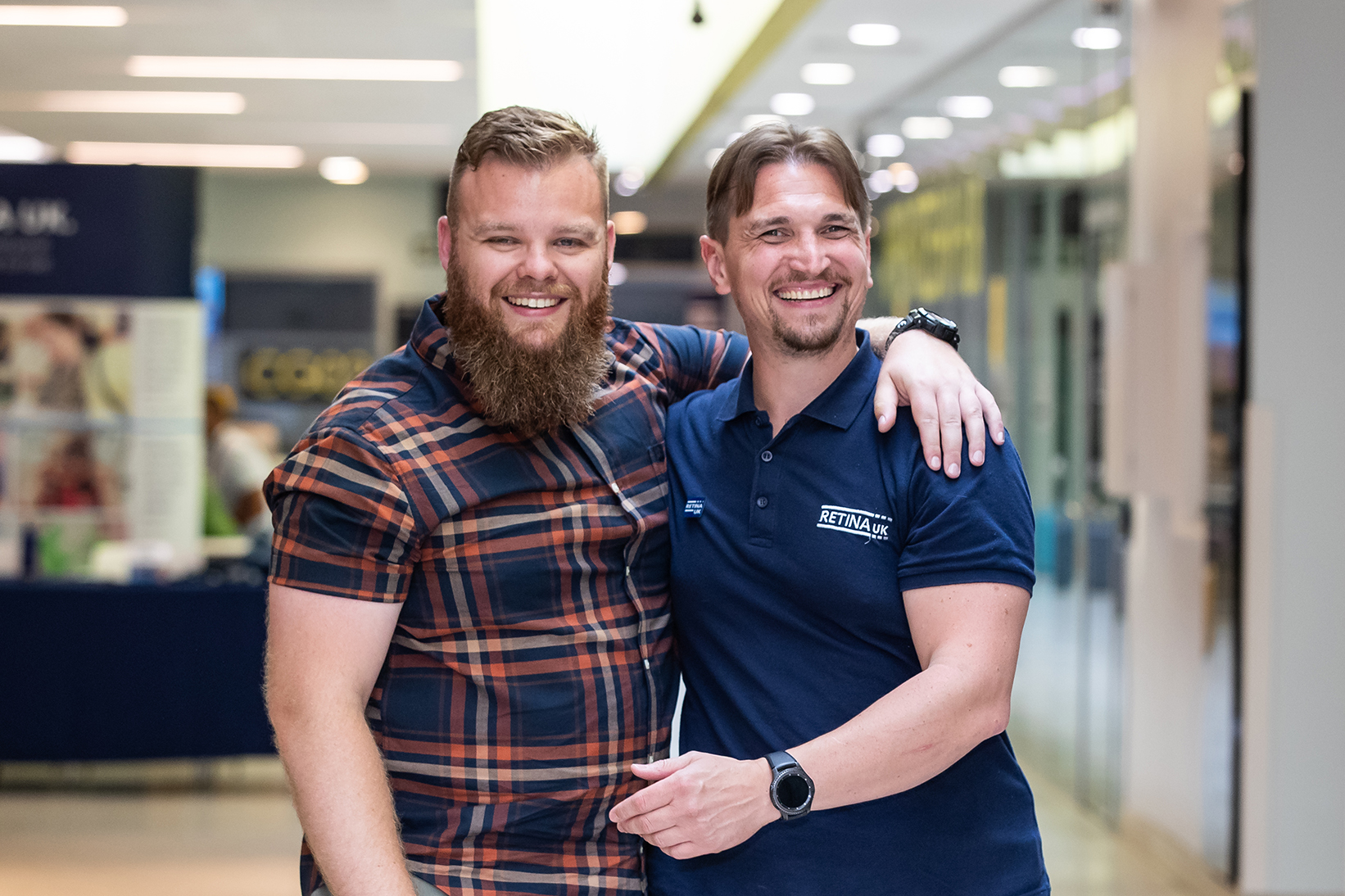
Become a Retina UK member
Join the Retina UK membership today! Anyone is welcome to join; whether you are living with a sight loss condition yourself, related to somebody who is, or if you are working as a sight loss professional.
Search results

Join the Retina UK membership today! Anyone is welcome to join; whether you are living with a sight loss condition yourself, related to somebody who is, or if you are working as a sight loss professional.

Since we were founded in 1976, we have invested more than £18 million into some of the most pioneering medical research - because of amazing supporters like you.

You can download the last three years’ Trustees’ Annual Report & Accounts. They are also available on the Charity Commission website.
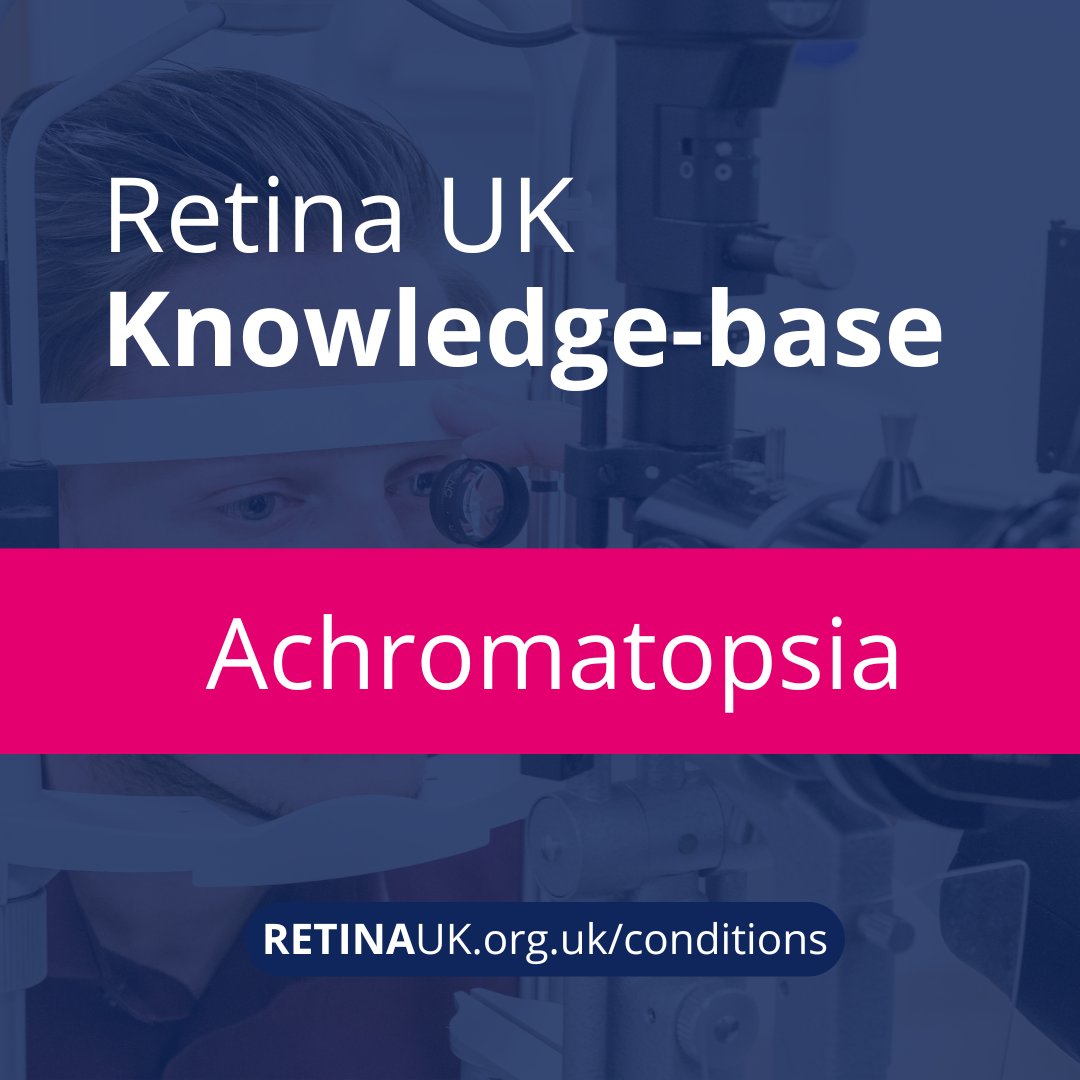
Achromatopsia is a rare hereditary vision disorder affecting approximately 1 in 30,000 newborn babies.

This edition of Look Forward includes the very latest news about an experimental therapy by Retina UK funded researchers, an article about one of our PhD students, a calendar of events in 2025, the usual research news round-up and lots more. Please take the time to complete our Sight Loss Survey, enclosed with this edition. You can find out more about the Survey.
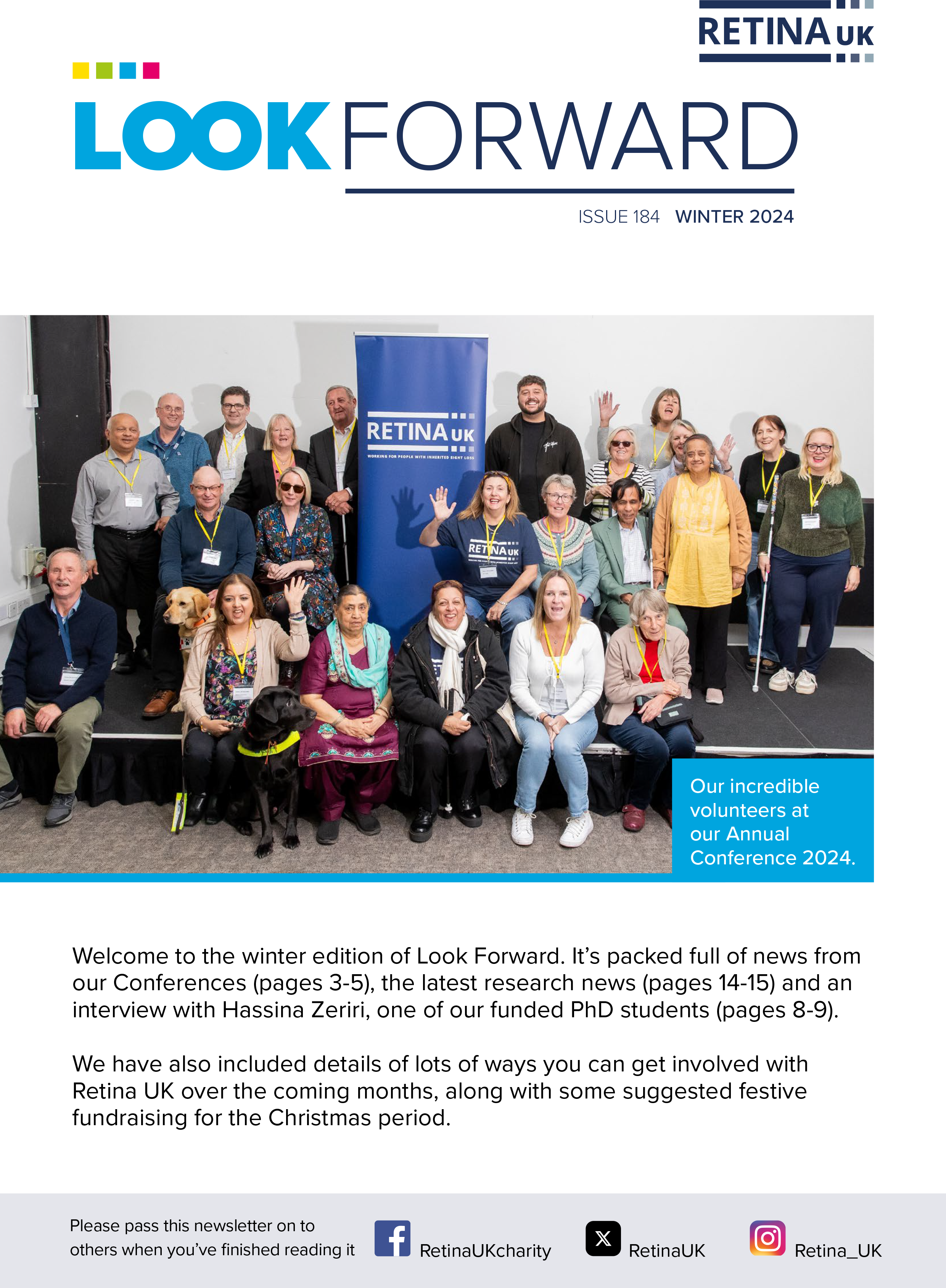
Welcome to the winter edition of Look Forward. It’s packed full of news from our Conferences, the latest research news and an interview with Hassina Zeriri, one of our funded PhD students.
We have also included details of lots of ways you can get involved with Retina UK over the coming months, along with some suggested festive fundraising for the Christmas period.

Cone-rod dystrophies are a group of inherited diseases that affect the photoreceptor (light sensing) cells that are responsible for capturing images from the visual field.
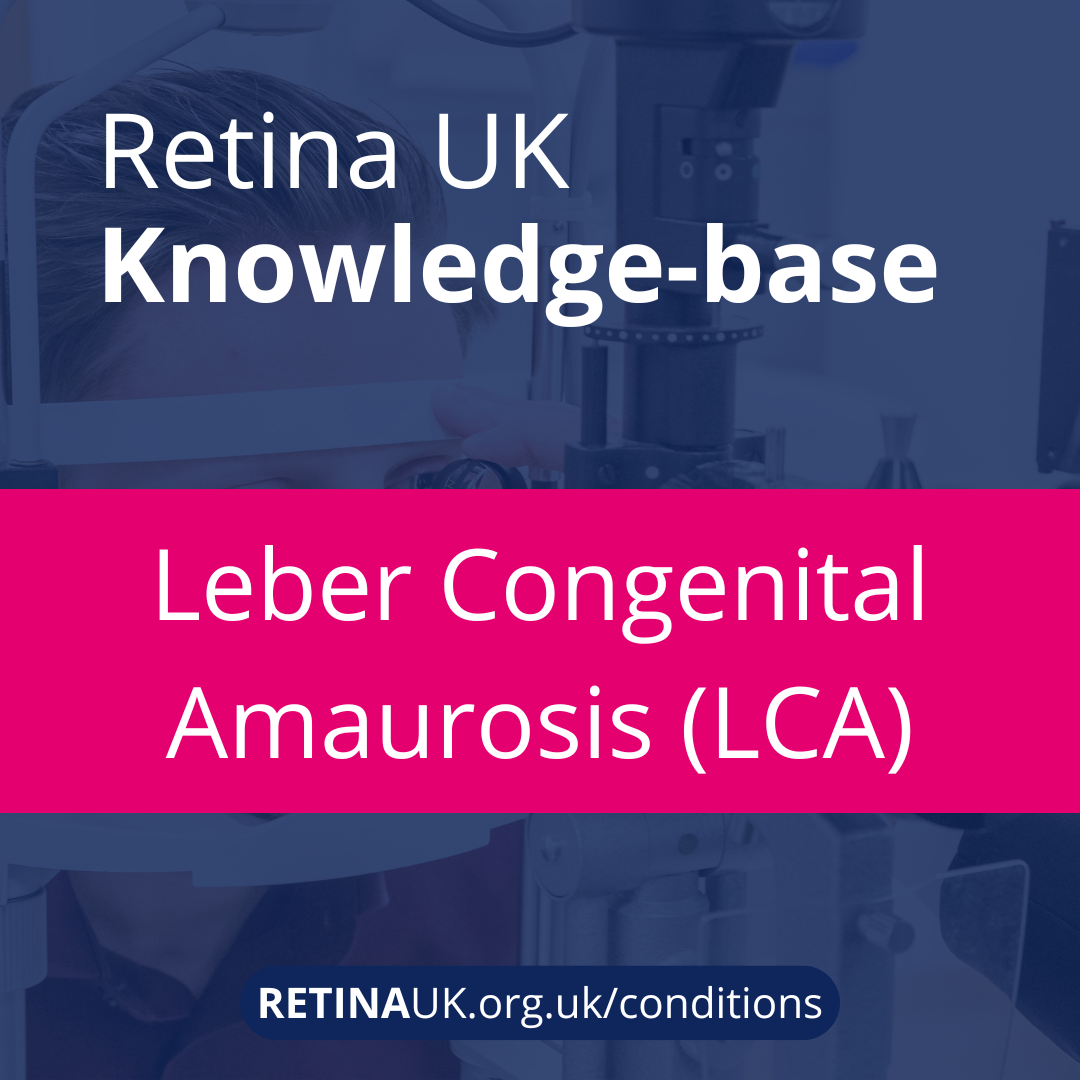
Leber Congenital Amaurosis (LCA) is a rare genetic eye disease that appears at birth or in the first few months of life.
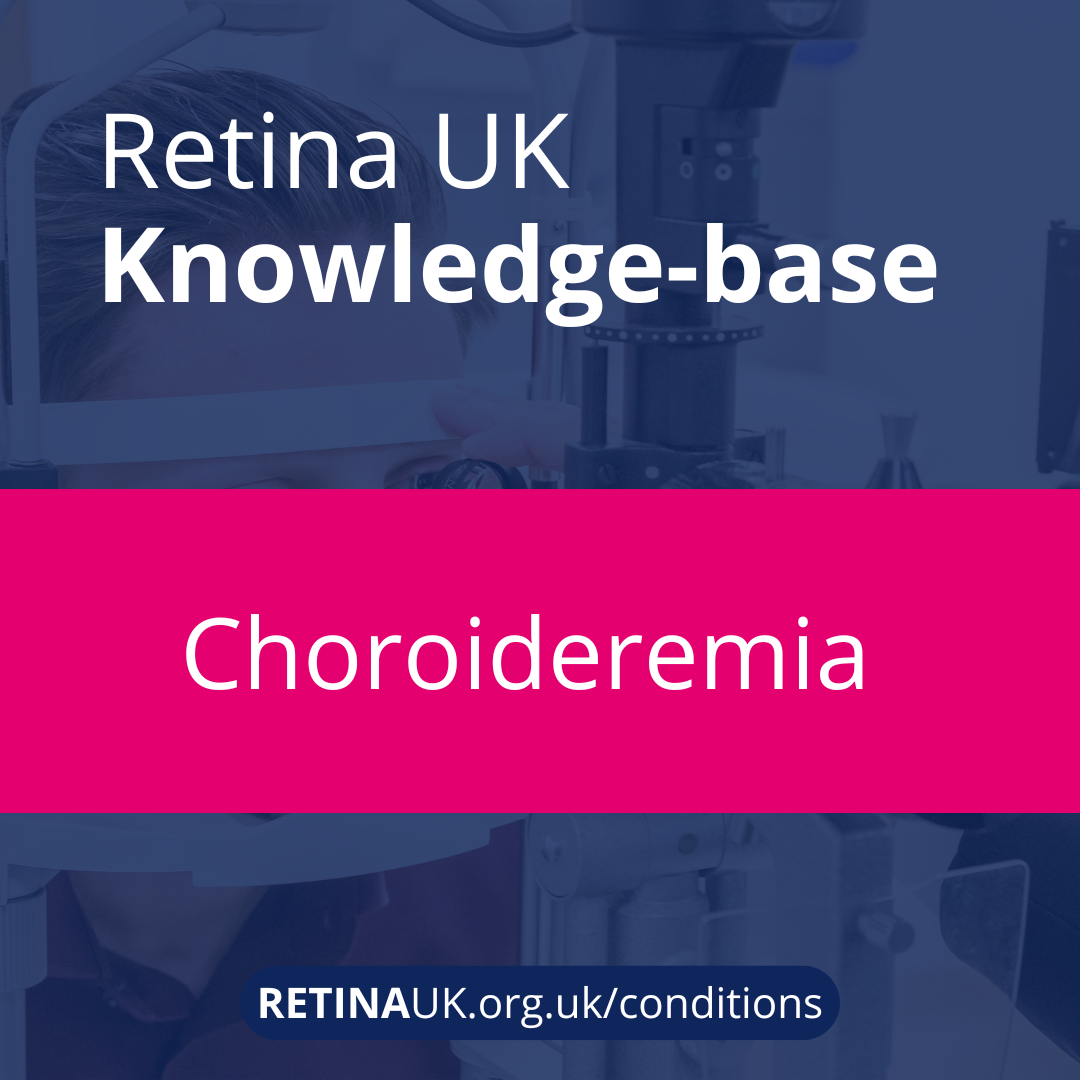
Choroideremia is a genetic condition that causes progressive vision loss, mostly in males.

Retinitis pigmentosa (RP) is an inherited eye condition that affects the photoreceptor cells responsible for capturing images from the visual field.